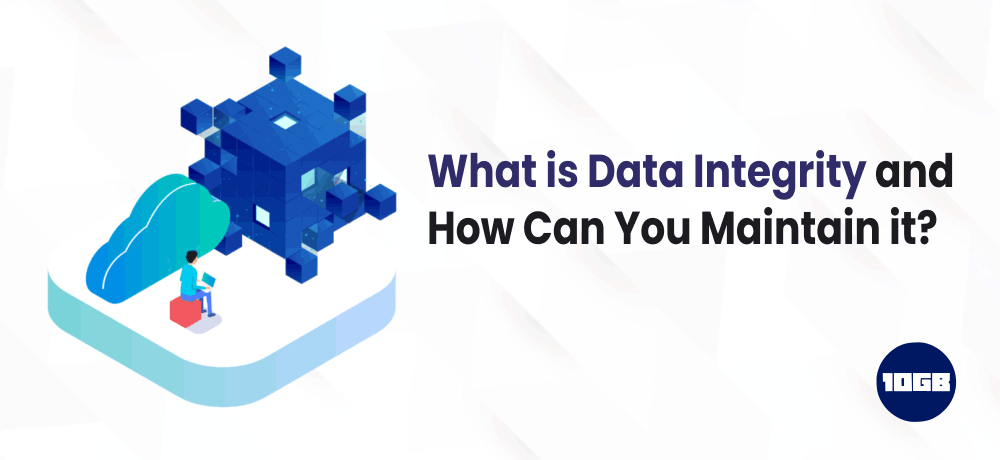In this blog post, we will be looking at what data integrity is, data integrity importance, and how you can maintain it. So let’s get started.
What is Data Integrity?
Data Integrity is the process to assure that the data is complete, precise, and consistent throughout its life cycle. Data integrity is of utmost importance for the progress of any business or organization that manages the storage of the data.
Data Integrity Threats
Below we have listed few ways on how a data can be damaged:
- Hardware Failure :- Data can get corrupted due to storage device failure or failure in other hardware components.
- Human Error :- People can make mistakes and can unintentionally corrupt your data.
- Configuration Problems :- Data can be damaged due to misconfigurations in the computing system. Here computing systems can be either software or security application.
- Damage During Data Transfer :- While transferring data to a storage device or other computer, the data can be damaged.
- Intentional Data Breach :- A person with evil intentions can attack a company’s system and modifies data. For instance, some ransomware asks for money (ransom) to unlock the encrypted data
The Importance of Integrity of Data
Crucial business decisions depend on the data’s precision. As the collection of data increases, companies utilize it to estimate and gauge the data efficiency.
If the data is corrupted then any decisions made based on that data are suspicious.
Maintaining the integrity of data will improve the stability and performance of the data and assure that it is retrievable with high accuracy.
Make sure that you follow strict rules to maintain data integrity and secure the data against threat actors or any potential malicious intent.
Data Integrity Vs Data Security
Data security is related to data integrity, however, they are not similar. Data security means safeguarding the data against unauthorized users. This incorporates hardware solutions like installing firewalls and software solutions like user authentication.
Data integrity is a wider application of solutions and policies to keep the data pure and unchanged. It can incorporate data security to avoid illegitimate users from editing or changing the data. However, it further offers steps to record, maintain, and preserve data in its initial form.
Also Read: What is Network Redundancy and Why Is it Important?
Aspects of Data Integrity
Data Timestamp
Data must have the date, time, and identity of who recorded it. It could incorporate a short insight or timestamp of access to a site.
Timely Logs
There shouldn’t be any delay in log data as it can create an opportunity for loss. Data must be record as it is seen, no changing or modifications.
Easy to Read and Well Formatted
Data should be well formatted and easy to read. A standard format should be used to document the ticket.
Original
An ideal data is preserved in the original format, safeguarded, and backed. Make sure you create reports utilizing copies of the original data. This minimizes the risk of corrupting the original data.
Precision
Ensure that data observe all the protocols and is error-free. A tech support representative may log a script. A website logger may record data in a standard file type such as an XML. A field technician should accomplish all entries on a paper form.
How to Ensure Data Integrity?
Check and Validate Input
Check for the input at the moment it is recorded. You should require an input validation from where the data is verified and validated to assure that input is precise.
Validate the Data
It is crucial to verify that your data processes have not been damaged. Recognize specifications and important characteristics that are vital to your organization prior you verify the data.
Eliminate Duplicate Data
Confidential data from a secure database can easily be located on home, a document, spreadsheet, email, or shared folders where employees without proper authentication can observe it. It will be a wise choice to clean such stray data and eradicate duplicates.
Conclusion
Data integrity focuses on keeping the electronic data intact.
Additionally, you can rely on 10GB Hosting‘s data integrity. We will treat your details in accordance with our privacy policy and the General Data Protection Regulation 2016 (“GDPR”).
